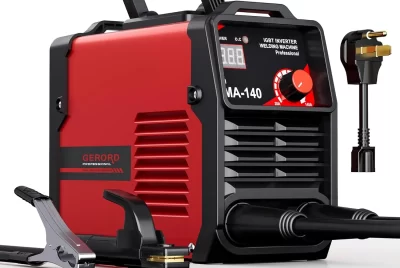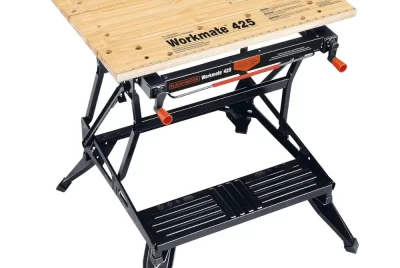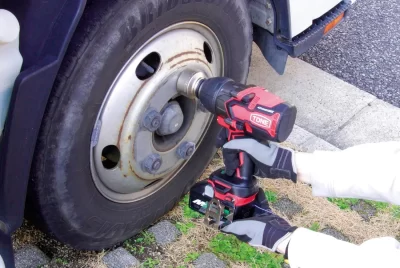Garage Safety: Tips for Accident Prevention
Garage tools can be powerful and versatile, but they can also pose risks if not handled with care. In this article, I’ll be sharing some valuable tips to help you prevent accidents and ensure a safe working environment in your garage. Let’s dive right in on Garage Safety!
1. Organize Your Workspace
One of the key steps to maintaining a safe garage is organizing your workspace effectively. A cluttered and disorganized area not only increases the risk of accidents but also hampers your productivity. Invest some time in creating designated storage spaces for your tools and equipment. Ensure that everything has its proper place, so you can easily find what you need while keeping potential hazards at bay for the best garage safety.
2. Wear Personal Protective Equipment (PPE)
Protecting yourself should always be a top priority. Whenever you’re working with tools, wear the appropriate personal protective equipment (PPE). Safety glasses or goggles are essential to shield your eyes from flying debris, sparks, or chemicals. Gloves protect your hands from cuts, abrasions, and chemical exposure. Additionally, consider using ear protection when operating noisy power tools to prevent long-term hearing damage.
3. Familiarize Yourself with Tools and Manuals
Before using any tool, take the time to familiarize yourself with its functions, features, and safety precautions. Read the instruction manuals thoroughly and understand how to operate the tools correctly. Different tools have specific safety guidelines, so it’s crucial to be well-informed. By doing so, you’ll reduce the risk of accidents and maximize your efficiency.
4. Regular Maintenance and Inspection
Regular maintenance and inspection of your tools are vital for accident prevention. Keep your tools clean, lubricated, and free from any damage. Check for loose screws, frayed cords, or any signs of wear and tear. Faulty tools can lead to accidents, injuries, or even damage to your projects. Repair or replace damaged tools promptly to ensure a safe working environment.
5. Power Tools: Handle with Care
Power tools can significantly increase your productivity and efficiency, but they also require extra caution. Always unplug power tools before making any adjustments, changing accessories, or performing maintenance. This simple step helps prevent accidental start-ups and potential injuries. Additionally, avoid wearing loose clothing or jewelry that could get entangled in the machinery. Always hold power tools securely with both hands, maintaining a stable stance to prevent accidents.
6. Use Tools for Their Intended Purpose
Each tool is designed for a specific purpose, and using them otherwise can be dangerous. Respect the tool’s limitations and avoid using them for tasks they aren’t designed for. Misusing tools not only increases the risk of accidents but also damages the tool itself. If you’re unsure about a tool’s appropriate usage, consult the instruction manual or seek advice from experienced individuals.
7. Proper Handling and Storage of Sharp Objects
Garages often house sharp tools such as saws, knives, or chisels. Proper handling and storage of these tools are crucial for accident prevention. Always use sheaths, cases, or secure racks to store sharp tools when they’re not in use. This helps prevent accidental cuts or punctures. When handling sharp objects, maintain focus and exercise caution, ensuring your movements are deliberate and controlled.
8. Fire Safety Precautions
Garages can be prone to fire hazards due to the presence of flammable materials, fuels, or electrical issues. To minimize the risk of fire, store flammable substances in designated areas that are well-ventilated and away from potential ignition sources. Install smoke detectors and fire extinguishers in your garage, and make sure they are easily accessible and regularly maintained.
9. Adequate Lighting for Enhanced Safety
Proper lighting plays a crucial role in creating a safe working environment in your garage. Insufficient lighting can lead to accidents or errors while using tools. Ensure that your workspace is well-lit by installing bright overhead lights or work lamps. Illuminate specific areas effectively to eliminate shadows and provide optimal visibility.
10. Electrical Safety Measures
Electrical safety is of utmost importance in any garage. Inspect electrical cords for any damage before use, and replace them if necessary. Avoid overloading electrical outlets and use surge protectors when powering multiple tools. If you’re not confident in your electrical skills, consult a professional to ensure proper wiring and electrical connections in your garage.
Conclusion
By implementing these tips for garage safety, you can significantly reduce the risk of accidents and create a secure working environment. Organize your workspace, wear the appropriate personal protective equipment, and familiarize yourself with the tools and their manuals. Regular maintenance and inspection of your tools are essential, especially for power tools. Use each tool for its intended purpose, handle sharp objects with care, and take necessary fire safety precautions. Ensure adequate lighting and practice electrical safety. With these measures in place, you can enjoy your time in the garage with peace of mind, knowing that you’re prioritizing your safety.
Read more on Garage Tool Info
FAQs
1. How often should I inspect and maintain my tools?
Regular inspection and maintenance are essential for tool safety. Aim to inspect your tools at least once every few months and address any issues promptly.
2. Can I use power tools in wet conditions?
No, it’s highly dangerous to use power tools in wet conditions as it increases the risk of electrical shock. Always ensure that your workspace is dry before operating any power tools.
3. Are safety glasses necessary for all types of projects?
Yes, safety glasses provide essential eye protection and should be worn for all projects that involve the use of tools or potential hazards, such as flying debris.
4. How should I store flammable substances in my garage?
Flammable substances should be stored in well-ventilated areas away from ignition sources such as open flames or electrical sparks. Use designated storage cabinets or containers designed for flammable materials.
5. Can I repair my own electrical wiring in the garage?
Unless you have the necessary expertise, it’s recommended to consult a professional electrician for any electrical repairs or wiring tasks in your garage. Safety should always be the priority when dealing with electricity.




